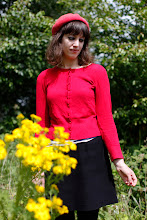 In the eighteenth and nineteenth centuries, gentlemen found a new hobby: recreational science. Vicars built their own microscopes. Would-be astronomers went out into their gardens and gazed up at the stars. One man kept a diary in which he wrote detailed observations about the decay of a nut whilst another, a collector, fashioned a bespoke moss jacket lined with pockets for his specimens.
In the eighteenth and nineteenth centuries, gentlemen found a new hobby: recreational science. Vicars built their own microscopes. Would-be astronomers went out into their gardens and gazed up at the stars. One man kept a diary in which he wrote detailed observations about the decay of a nut whilst another, a collector, fashioned a bespoke moss jacket lined with pockets for his specimens.Artist Antony Hall is a like recreational scientist for the twenty first century, inspired by these gentlemen of a certain age and their ability to find “interest in obscure things that weren't immediately exciting” whilst exploring new opportunities such as biohacking and nanotechnology. Often working with slides and Hele-shaw cells, he's interested in “how many different experiments you can do in a slide”.
He explains: “I always wanted to be a scientist when I was a kid – I had a sign on my bedroom saying 'lab', and I loved my microscope, but I wasn't very good at school so was encouraged not to do science. I did art instead and turned it into my science practice.
“I started doing animal sculpture. Then I looked at the natural world and how things are formed and how animals and insects behave. This got me interested in biology and ecology and the conceptual art of the 1970s.”
Antony often works with living creatures such as fish and insects. Pond Life, for example, magnified and projected microorganisms. “I like the element of collaboration with other creatures – of caring and nurturing them and getting them to behave in a certain way by providing them with things that are suitable such as food and light.”
He is a founding member of the Manchester-based Owl Project, a collective that looks at how humans interact with technology, and hacks old technology and turns it into something new, often through sound performances. Part of his practice also involves interactive workshops under the name of Tabletop Experiments. Antony explained: “I've always liked my work to be quite fun, and it makes science accessible.” Sometimes this involves showing participants how to make creations, for example 'brush-bots' – robots made from batteries, brushes and motors which draw spirographs and patterns. He describes them as: “Little units that interact. They've all got their own characters – it's as if they're alive but they're not. They dance around and back into each other. Some go round in circles and others go in straight lines.”
During Future Everything festival, Antony will be creating a “generative soundpiece” in the empty, disused gala pool in Victoria Baths, which members of the public will “walk in and compose”, experiencing invisible fields around motors via electromagnetic sensors akin to microphones that they will be encouraged to pick up and move around the space. Antony's challenge was: “How can I represent movement and liquid in this space that is now just air? How do I represent volume?” He decided the answer was to “energise objects in a big space” by suspending different motors above the pool and adding electricity: “The more energy you put in to it the more chaotic it becomes. The motors affect each other and associate themselves with each other in subtle interactions.”
He elaborated: “I wanted to represent the surface. Visitors will walk into the pool and, instead of walking under water, walk under a layer of activity. When you're beneath it you can hear it buzz above your head.” He admits: “I like going around my garden with a microphone recording the buzzing of bees.”
Inspiration for the installation was drawn from the natural world, in particular a type of beetle known as a whirligig that sits on the surface of the water and has split eyes so it can see above and below. Antony explains that: “Whirligig beetles swarm and “display” to each other. Sometimes they fight, and likewise it sounds really good when the motors clash.”
Antony's interest in capturing movement will be continued with a large wave pendulum made of jam jars hanging in the entrance to the cafe that visitors will set off with their movement as they enter and leave – simulating the continuous motion of a wave.
Antony Hall's Physical Oscillators can be experienced at Victoria Baths, Hathersage Road, Chorlton-on-Medlock, on Saturday 14 and Sunday 15 May from 10am-4pm during Future Everything festival. Free event.




1 comment:
hi natalie
great article , just t mention that the Antony HALL work is also open on sunday 15th 10-4
thanks for writing
Alison
Post a Comment